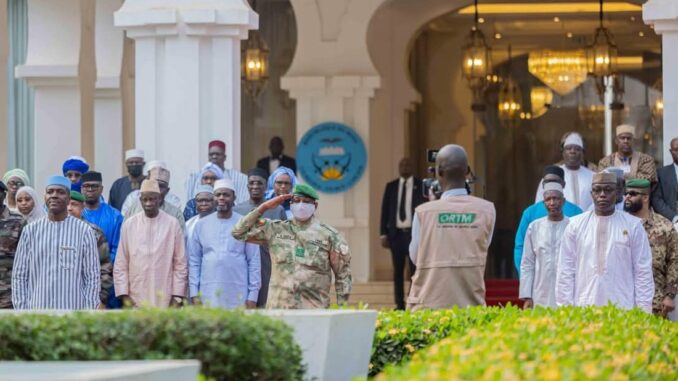
Mali’s military-led government has approved a bill that would allow transitional leader Gen. Assimi Goita to remain in power for another five years, signalling a further entrenchment of authoritarian governance in the embattled West African state.
The draft legislation, adopted on June 11 by the Council of Ministers, proposes amending the current Transition Charter to enable Goita to begin a renewable five-year term in 2025. This development follows the May dissolution of political parties, consolidating control in the hands of the military.
The proposed extension is rooted in recommendations from a national consultation held in April, a process widely criticised for its exclusionary nature after most political parties declined to participate. The bill must now pass through the National Transitional Council, the military-dominated legislative body, which is expected to approve it. Analysts say the junta is using the guise of popular dialogue to legitimise its hold on power while silencing dissent and stalling any genuine return to constitutional rule.
Goita’s regime has presided over a deteriorating security environment marked by surging extremist violence and shrinking civic space. The May decree that dissolved political parties coincided with kidnappings of pro-democracy activists in Bamako and was followed by public demonstrations. Having twice promised elections—most recently pledging a civilian transition by March 2024—the junta has repeatedly deferred timelines. With no date set for a presidential vote, Mali risks prolonged authoritarian rule under the shadow of unrelenting insecurity and international isolation.
